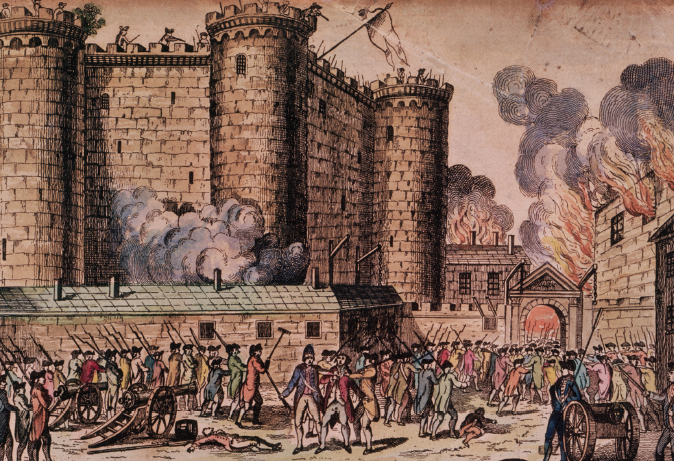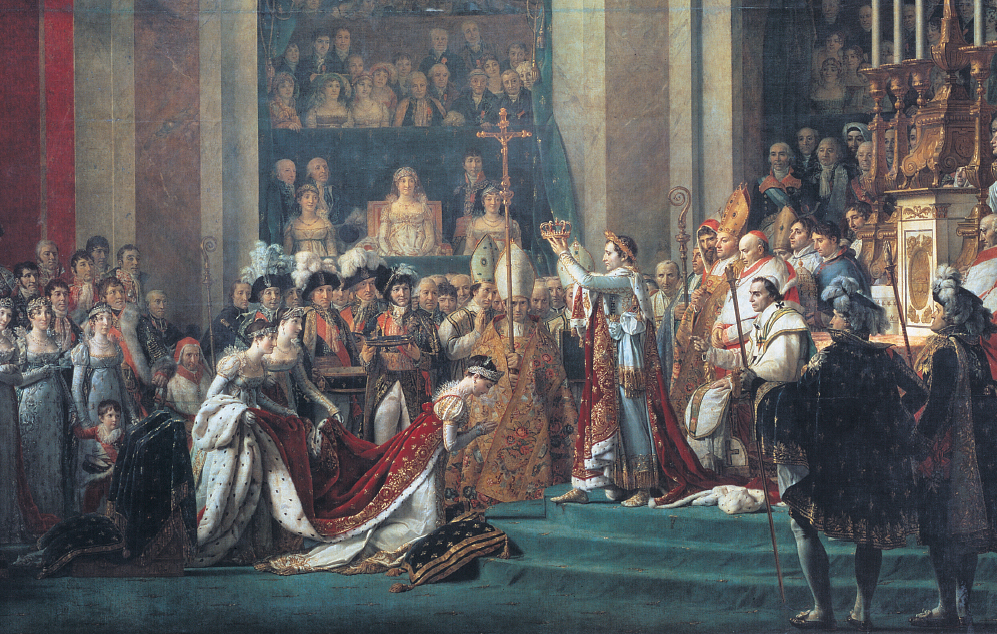The French Revolution
Romanticism, as we shall see, was originally a literary movement. Though well under way by the beginning of the nineteenth century, it was not yet influential in Vienna; and, in any case, Beethoven did not have a very literary sensibility. At the root of Romanticism, however, lay one great political upheaval that made an enormous impact on the composer’s generation. This was the French Revolution. Beethoven was one of many artists who felt compelled to proclaim their sympathy with the ideal of freedom symbolized by that cataclysmic event.
When the Parisian crowd stormed the Bastille in 1789, Beethoven was a highly impressionable eighteen-
Before Beethoven could send the symphony off to Paris, liberal Europe received an ominous jolt: Napoleon crowned himself emperor of France. Beethoven scratched out the dedication on his score in a fury, and his feelings for Napoleon and France were never the same again. But idealism dies hard. To many at the time, the French Revolution still stood for an ideal of perfectibility — not so much of human society (as Beethoven himself acknowledged by deleting Napoleon’s name) as of human aspiration. That ideal, too, is what Beethoven realized by his own triumph over his deafness. The point was not lost on those of his contemporaries who were swept away by his music.
And that is what listeners have responded to ever since. Listening to the Eroica Symphony, we sense that it has less to do with Napoleon than with the composer’s own self-

